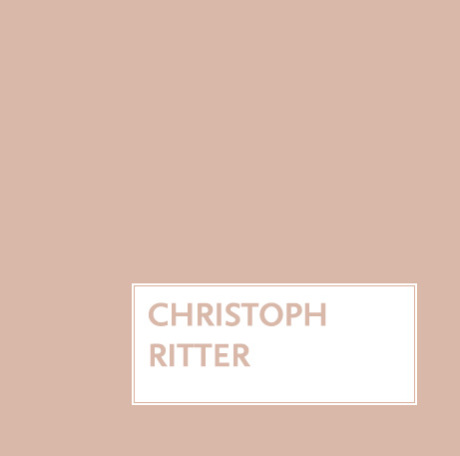
Born and raised in Thuringia, the silhouette of this landscape with its hills and forests laid out Christoph Ritter’s path of life and work in advance, so to speak. He inherited from nature the gift of contemplation and deeper understanding of the process in question, traits which are rare among artists nowadays. These qualities organically integrate every aspect of Ritter’s work as harmonizing and predetermining influences, be it performance practice, or pedagogy, as well as organisation of festivals. Already his turn towards song interpretation during Ritter’s piano studies at the Weimar Liszt School of Music revealed his growing special interest in the reciprocal influences of the arts. He was confirmed and moulded by Norman Shetler, who gave him considerable impulses for his playing the piano.No matter when a particular piece of music was composed, Ritter is convinced that it must always be considered as contemporary. His own concert is dialogue, conversation, and play with uncertain outcome, giving room to intuition and the unexpected.It was only a matter of time until he discovered the world of contemporary compositions with its extended playing techniques and fascinating possibilities of sound production. This led to the founding of the ensemble for 20th century classical music klangwerkstatt weimar. For many years now he has been closely attached to this ensemble through the conception and realisation of his own, unique concert series as well as recordings for radio and CDs.A chair at the Liszt School of Music Weimar and, because of that, international master classes in song interpretation for singers and pianists at renowned conservatoires such as the ones in Princeton, Taipei, Biel, Birmingham, Oslo, Istanbul, and Dublin permit Ritter to fully realise his artistic basic concepts and principles. One of his basic principles when giving lessons: the development of individuality by identity of sound. Christoph Ritter teaches his numerous students a concentrated growing of/listening to their inner selves. The development of sound techniques is only one issue.For his own, and his students’ use he created a personal library, which is unique in many respects. It consists of international philosophy, prose, lyric poetry, volumes about the visual arts and sheet music. In Ritter’s eyes, the performance at concerts and pedagogy are two naturally connected laboratories and test arrangements. Beyond any doubt, each of these activities is an act of art.Even a dry and short enumeration of Ritter’s artistic activities would be worthy and extensive enough for a musician who only gave concerts and was not involved in pedagogy. How does Ritter manage to calmly, tranquilly, merge the performing musician and the pedagogue within himself? It is this: his immersion into the timeless, but ever sought sounding SELF.